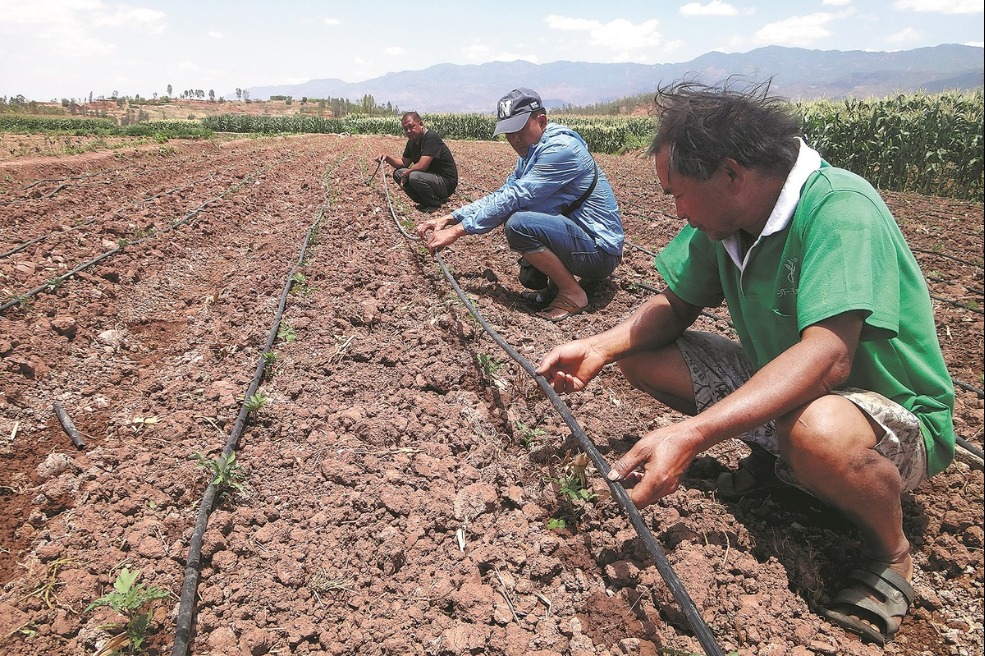Brick by Brick, Xi Jinping drives BRICS cooperation


BEIJING -- As Chinese President Xi Jinping and a host of other leaders gather in Kazan, Russia, for the 16th BRICS summit, the world is once again turning its limelight on the burgeoning international mechanism for how it will push forward self-development and respond to global woes.
A steadfast champion of BRICS cooperation, Xi once compared its five members back then to the five fingers of one hand: They are short and long if extended, but form a powerful fist if clenched together. Now that hand has grown bigger and stronger, as its membership expanded last year, yet the essence of Xi's metaphor is just becoming more relevant.
With the world trudging on in a new period of turbulence and transformation, the leader of the largest developing country is poised to help guide BRICS, the leading echelon of the Global South, to play a bigger role in building a better shared future for humanity.
GOLDEN VALUE
BRICS, an acronym for Brazil, Russia, India, China, and South Africa, is literally called "gold bricks" in Chinese, indicating optimism for its great potential and shining future.
The sanguine view features prominently in Xi's engagement with the group. He has consistently placed BRICS high on China's foreign policy agenda. His first appearance on the multilateral stage as China's head of state was at the 2013 BRICS summit in Durban, South Africa, and he visited all other four BRICS countries during the first two years of his presidency.
"China led by President Xi Jinping has contributed significantly to the success of BRICS," noted Bunn Nagara, a senior China researcher in Malaysia.
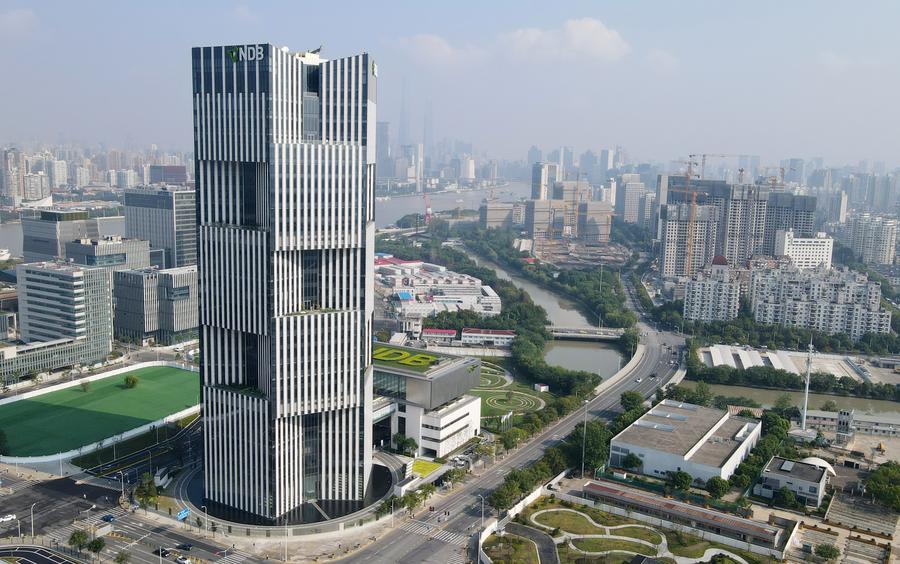
Thanks to the joint efforts of its members, the golden value of BRICS has kept rising. World Bank data show that the share of BRICS in global GDP grew from 18 percent in 2010 to about 26 percent in 2021, with increases in all years during the period.
Among the drivers of its remarkable growth is a strong orientation toward real results. "BRICS is not a talking shop, but a task force that gets things done," Xi once stressed.
Following this spirit, practical cooperation has always been the foundation of the BRICS mechanism, a good example of which is the launch of the New Development Bank (NDB). Headquartered in Shanghai, the multilateral institution had approved 105 projects in all member countries for approximately $35 billion by the end of 2023.
In view of BRICS' evolving development needs, Xi, at the 2017 summit in China's coastal city of Xiamen, joined other member leaders in formally incorporating cultural and people-to-people exchanges into the engines of BRICS cooperation, in order to further enhance the bond between these nations and reinforce the foundation of BRICS interaction.
Powered by the three engines, namely political and security, economic and financial, as well as cultural and people-to-people exchanges, the BRICS cooperation has witnessed even more substantial progress and growing popular support.
The unique value of the BRICS cooperation goes beyond economic terms, and the mechanism is an innovation of international cooperation, which is in marked contrast to some protectionist, exclusive political, military or economic alliances in the West, said Wang Lei, director of the BRICS Cooperation Research Center at Beijing Normal University.

In Xi's words, the BRICS cooperation transcends the old formula of political and military alliances, the old mindset of drawing lines on the basis of ideology as well as the obsolete notion of "you-win-I-lose" and "winner-takes-all."
The golden track record, as many observers have pointed out, has not only amply busted various gloom-and-doom claims such as that BRICS is nothing but "a motley crew," but also significantly increased its appeal to the rest of the world.
GREATER BRICS
On Aug. 24 morning last year, the Sandton Convention Center in Johannesburg erupted with applause upon the announcement of BRICS' historic expansion. That, Xi said at the press conference, demonstrates "the determination of BRICS countries and developing nations to unite."
Since the inception of the BRICS mechanism, openness and inclusiveness have remained its members' abiding commitment. Xi has repeatedly emphasized that BRICS countries gather not in a closed club or an exclusive circle. "A tree cannot make a forest," he said as early as at his BRICS summit debut in Durban in 2013. A year later at the Fortaleza summit in Brazil, he proposed the "BRICS spirit" of openness, inclusiveness, and win-win cooperation.
With such an open mind, the group developed a tradition of inviting leaders of other countries to its summits. Then at the 2017 gathering in Xiamen, an ancient port city that has evolved into a dynamic hub in China's opening-up and reform, Xi built on that outreach practice and put forward the "BRICS Plus" program, encouraging more participation of other emerging markets and developing nations.
In fact, this southern Chinese city of Xiamen happened to be where Xi came to work as deputy mayor in 1985 at 32. Now, under Xi's initiative, an innovation base for the BRICS partnership on the new industrial revolution has taken root there.
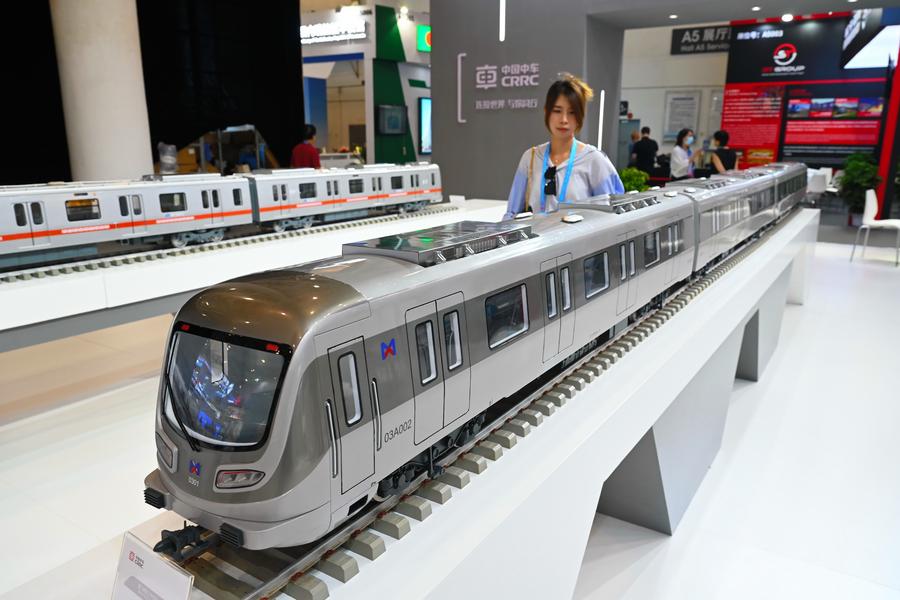
Over the years, with profound changes reshaping the world at a degree rarely seen in history, the Chinese president has unwaveringly championed openness and cooperation. "Under the new circumstances, it is all the more important for BRICS countries to pursue development with open doors and boost cooperation with open arms," Xi said at the 14th BRICS summit in 2022.
A year later, more than 60 countries gathered in Johannesburg for the BRICS summit. The gathering "is not an exercise of asking countries to take sides, nor an exercise of creating bloc confrontation," Xi said. "Rather, it is an endeavor to expand the architecture of peace and development."
Other than the countries that became new full members on Jan 1, 2024, more than 30 nations have also formally applied to join BRICS, while many other developing countries are seeking deeper cooperation with the group.
"There is a reason why these countries choose to join BRICS," said Mekhri Aliev, a board director of the BRICS innovation base in Xiamen. "Because they see future, they see potentials and opportunities within the BRICS."
BIGGER VOICE
Three months after its expansion decision, BRICS convened an extraordinary joint summit on the Gaza situation with leaders of invited members, as well as UN Secretary-General Antonio Guterres. That was a first-of-its-kind meeting for the group. The meeting, as Xi said, marks "a good start" for greater BRICS cooperation following its enlargement.
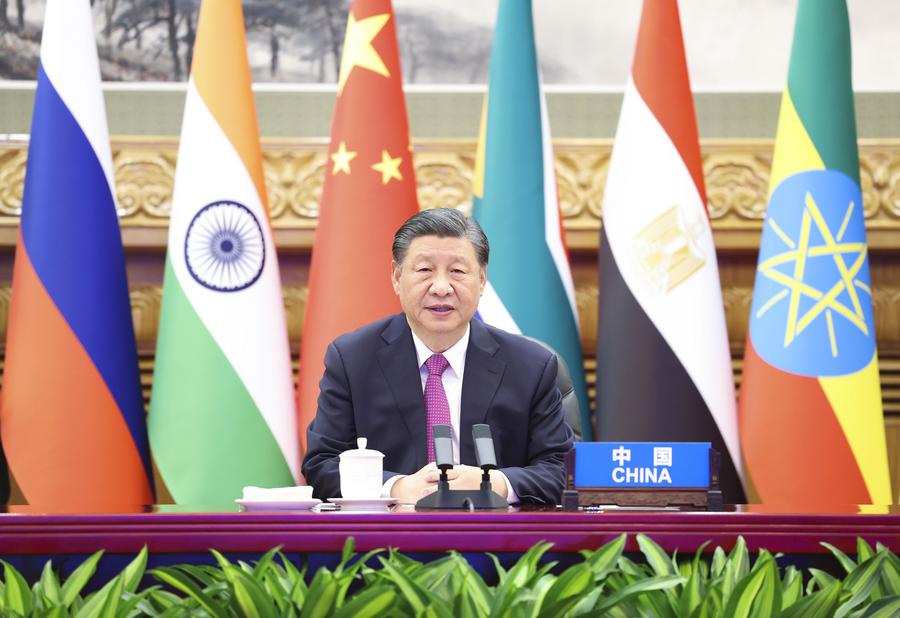
Commenting on this summit, Al Jazeera said that leading countries of the Global South are looking for "a greater say in a global order dominated by the West." Steven Gruzd, an analyst at the South African Institute of International Affairs, said: "It does reflect on the growing assertiveness and confidence of the BRICS grouping, not waiting for the West."
BRICS is an important force in shaping the international landscape. Advancing a more just and equitable international order has been a consistent theme in Xi's remarks on BRICS cooperation.
Effective coordination between BRICS members and other Global South countries is "adding more bricks to the global governance architecture," said Wang Lei, the Chinese expert with Beijing Normal University.
The New Development Bank (NDB) exemplifies this effort. "The establishment of the bank serves as a beneficial supplement and improvement to the existing financial system," Xi said, "which can encourage deeper reflection and more active reforms in the global financial system."
During a meeting with Dilma Rousseff, former Brazilian President and incumbent NDB chief, in Beijing in 2023, Xi called on the NDB to help with the modernization of more developing countries. Rousseff shares Xi's vision. "It is a vision that we don't want BRICS to speak just for a few countries. What we want is for most countries to be part of BRICS," she told Xinhua.
As Xi has observed, strengthening global governance is the right choice if the international community intends to share development opportunities and tackle global challenges.
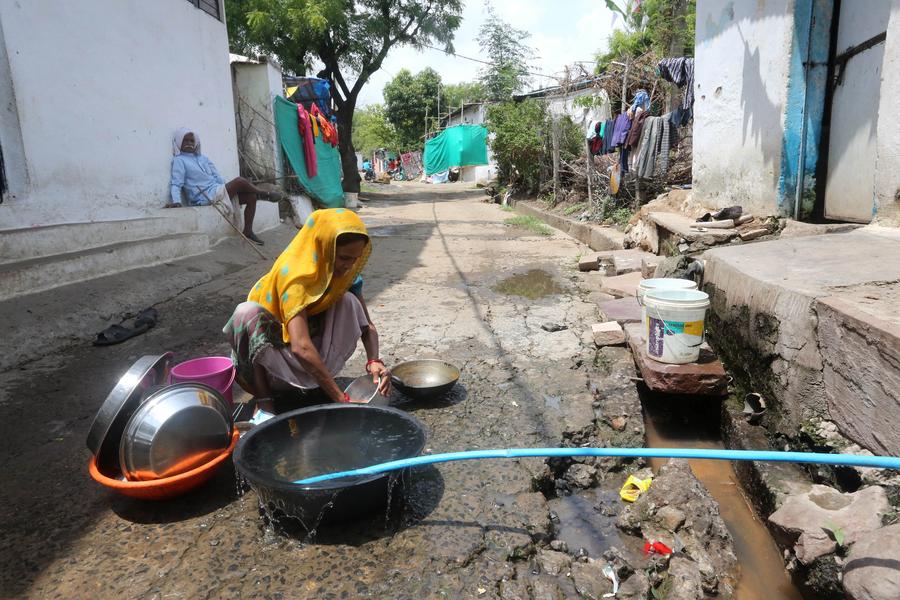
"Economically, non-Western nations — with BRICS at the vanguard — are pushing the globe into a new reality: An emerging economic, social, and monetary status quo that is upending what the world has accepted as normal for nearly eight decades," Jeff D. Opdyke, a global investment expert, has observed.
To Guan Zhaoyu, a research fellow with the Eurasian Studies Institute at Renmin University of China, BRICS cooperation "is neither anti-Western nor aimed at overthrowing the existing global order, but rather constructively reforming its unfair aspects to give more opportunities to the developing world."
Xi maintains that development is an inalienable right of all countries, not a privilege of a few countries. Under his grand vision to build a community with a shared future for mankind, China has been joining hands with other developing countries in advancing their respective modernization.
China will always be a member of the Global South and the developing world, Xi has said on various occasions.
"President Xi has sent out a very clear message: China will unite with other emerging markets and developing countries in the process of global modernization and make sure no one is left behind," said Guan.


















